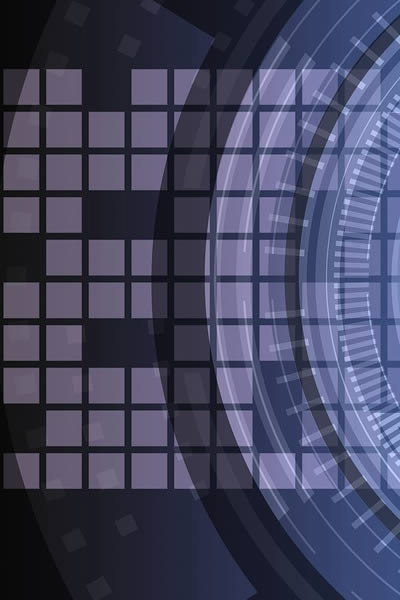Enter artificial intelligence (AI), a tool that is transforming campus security. Colleges across the country are deploying AI technologies to not only respond to incidents more effectively but also predict and prevent them.
This article explores the current challenges in campus safety, the innovative AI solutions being implemented, real-world examples of success, and the ethical considerations institutions must address.
By the end, you’ll understand how AI is ushering in a new era for campus security and what the future holds.
Current Challenges in Campus Safety
While colleges aim to foster a safe environment for learning and development, they often face significant safety challenges. Incidents such as burglary, assault, and even active shooter situations highlight the vulnerabilities that exist.
Additionally, issues like underreporting of incidents, delayed response times, and insufficient manpower in campus security programs exacerbate these challenges.
Traditional approaches such as campus patrols, security cameras, and emergency response systems, while essential, often fall short in addressing 21st-century threats.
These methods can be reactive rather than proactive, leaving institutions struggling to prevent incidents before they occur. This has led many colleges to explore innovative tools such as AI to fill the gaps in their safety measures.
AI Solutions for Campus Safety
Artificial intelligence offers a practical and scalable solution to many of the issues that plague traditional campus safety efforts. By leveraging AI, colleges can now go beyond merely reacting to incidents to proactively identifying and mitigating risks.
Here’s how various AI-powered technologies are being used to improve campus security:
-
Intelligent Surveillance Systems
AI-powered surveillance systems are a game-changer for campus safety. These systems use machine learning algorithms to analyze camera feeds in real time. They can detect unusual behaviors, such as loitering in restricted areas or sudden movements that might indicate a struggle.
Unlike traditional cameras that require human monitoring, these AI surveillance systems instantly alert security officers to potential threats, allowing for faster responses.
For example, some colleges have integrated AI with facial recognition to restrict access to certain facilities, ensuring that only authorized individuals can enter.
Additionally, AI systems can identify unattended belongings, which might pose security risks, and alert appropriate personnel within seconds.
-
Predictive Analytics
Perhaps one of the most groundbreaking uses of AI in campus safety is predictive analytics. By analyzing historical data and real-time reports, AI systems can predict potential risks or high-risk scenarios.
For example, predictive AI might analyze patterns of criminal activity at particular times or locations on campus, allowing security teams to allocate resources more efficiently.
Predictive analytics also helps in student well-being. Some systems track key indicators such as behavioral changes or access patterns to identify students who might be at risk for self-harm or harm to others. This enables early interventions and fosters a safer community.
-
Chatbots and Virtual Assistants
AI-powered chatbots are being used to assist students and staff with safety-related inquiries. From answering questions about campus security protocols to providing step-by-step guidance during emergencies, these tools make safety information more accessible. Some chatbots can even be programmed to report incidents directly to the campus safety department in real time.
-
Emergency Response Systems
AI is also revolutionizing how campuses handle emergency situations. Advanced systems can integrate with Internet of Things (IoT) devices such as smart door locks or automated alarms.
For instance, in the event of an active shooter situation, AI-powered alarms can lock classroom doors automatically or provide tailored evacuation routes depending on the location of the threat.
Case Studies in AI-Driven Campus Safety
Several colleges are already pioneering the use of AI to enhance campus security.
For example, Stanford University employs AI-based surveillance systems capable of analyzing feeds from hundreds of cameras to detect suspicious activities across its vast campus. The system uses intelligent pattern recognition to distinguish between routine behaviors and actions that could signify potential threats.
Meanwhile, the University of Southern California has implemented predictive analytics to map out high-risk areas on campus. Security teams use these insights to improve patrol routes and proactively manage safety concerns.
Even smaller institutions like Davidson College have adopted AI chatbots to provide students with 24/7 access to safety resources, making a robust security plan more attainable even for campuses with limited funds.
Ethical Considerations When Using AI for Campus Safety
While AI offers remarkable opportunities, its adoption raises valid ethical concerns, particularly regarding privacy and bias. Implementing surveillance systems and facial recognition technologies often sparks debates about personal privacy.
Students and staff may feel uneasy knowing their behavior, movements, or facial features are being constantly monitored.
Additionally, biases in AI algorithms can lead to unfair targeting or profiling of certain groups, perpetuating existing inequalities. For example, studies have shown that facial recognition software is less accurate in identifying individuals with darker skin tones, leading to improper alerts in some cases.
To address these issues, colleges need to:
- Be transparent about how data is collected, stored, and used.
- Regularly audit AI systems to identify and correct biases.
- Provide channels for feedback from students and staff to maintain trust.
Striking a balance between enhanced security and ethical responsibility is crucial for the success of these AI initiatives.
Future Trends in AI for Campus Safety
The use of AI in campus safety is still in its early stages, but the future promises even greater applications. For example, advances in natural language processing (NLP) could enable real-time analysis of social media posts or online forums to detect potential threats before they materialize.
AI-powered drones might soon patrol campuses, offering an aerial perspective of large events or monitoring isolated areas more effectively. Additionally, wearable technology integrated with AI could instantly alert campus security if a student or staff member feels unsafe or is in distress.
The roadmap for AI in campus safety also includes deeper integrations with mental health support systems. By analyzing data from multiple sources, such as academic performance and attendance records, AI could offer a more holistic approach to safety by identifying at-risk individuals early on.
other related articles of interest:
Redefining Campus Safety with AI
AI is undeniably changing the way colleges manage campus safety. From smarter surveillance systems to tools that predict risks before they happen, this technology is helping institutions provide safer environments for students, staff, and visitors.
While ethical considerations must be addressed thoughtfully, the benefits of AI in enhancing campus security are too significant to ignore.
Colleges that deploy AI not only improve safety measures but also position themselves as forward-thinking institutions that prioritize the well-being of their communities. For administrators and campus security officers, now is the time to explore how AI can reshape and elevate your safety strategies.
Transform your campus safety program with the power of AI. Leverage this technology to foster security, confidence, and peace of mind for everyone on campus.
Image Credit: how colleges are using AI for campus safety by envato.com
end of post … please share it!
PAYING FOR COLLEGE: getting the aid you need
-------------------------------------------------------------------------------------------------------------
end of post idea
-------------------------------------------------------------------------------------------------------------
view home improvement ideas at our Photo Remodeling center












